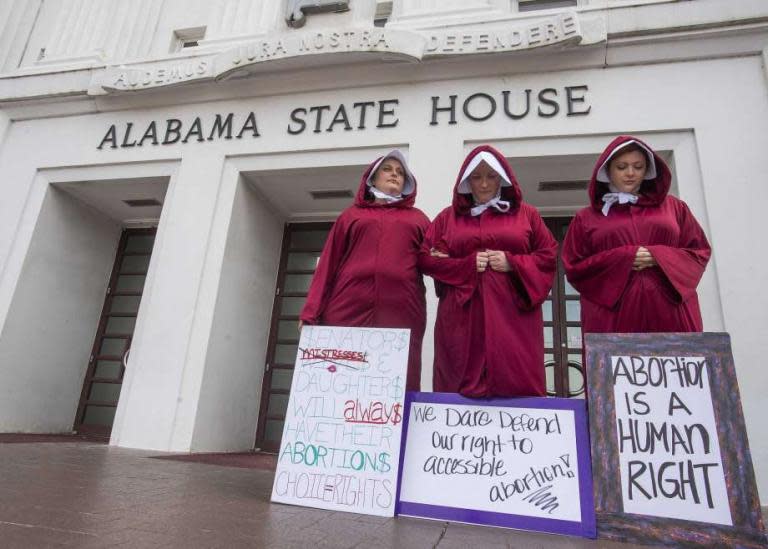Google gave '$150,000 in free ads to anti-abortion group'
Google has given $150,000 of free advertising to an anti-abortion group that tricks women into thinking it offers abortion services but actually seeks to stop “abortion-minded women” from having their pregnancies terminated.
The Obria Group, a Southern California based non-profit that describes itself as being “led by God”, is a chain of crisis pregnancy centres that oppose abortion and do not offer contraceptives.
Obria, which is said to be funded by Catholic organisations, runs a network of clinics across the country, many of which misleadingly suggest on their websites that they offer abortion.
The Obria Group got a $120,000 Google advertising grant in 2015 and another of $32,000 in 2011, The Guardian reported.
Obria was awarded the 2015 grant in spite of the fact Google came under heavy fire a year earlier after a pro-choice group found the platform was running deceptive ads for clinics that appeared to provide abortions and other medical services, but instead focused on counselling and information on alternatives to abortion.
In some cases, such clinics, which are referred to as crisis pregnancy centres (CPCs), are situated close to Planned Parenthood clinics and provide some medical treatment, such as pregnancy tests, ultrasounds and prenatal counselling. However, they also strive to deter women who enter from seeking abortions and do not offer referrals for alternative treatment.
Alice Huling, a lawyer for the Campaign for Accountability, a public interest watchdog, said: “Google is the preeminent source of information on the internet, and is often the first resource for a woman with an unplanned pregnancy.
"Google has said it will stop running deceptive ads from CPCs, yet we still see these types of advertisements appearing on its platform. Clearly Google is content to keep its head in the sand and allow these groups to run misleading ads. Unless Google acts, CPCs will continue to use deceptive online advertising to trick women into visiting their sites."
Mary Alice Carter, executive director of Equity Forward, a reproductive rights group, said: "The more we learn about Obria, the more questions we have. We know why the federal government and its anti-abortion cronies rolled out the red carpet for a so-called ‘health care provider’ that does not offer birth control and peddles medically unproven services. But why is Google following in those anti-science footsteps? Taxpayers and the hundreds of millions of Americans who use Google deserve an explanation."
Google refused to comment on the grant but said all recipients have to comply with its policies - including one which states groups can’t “deceive users by excluding relevant information or giving misleading information.” Obria chose not to comment on the Google grants.
Google awarded the Obria grant as part of a program to help non-profit organisations across the world with in-kind donations worth up to $10,000 a month.
Obria recently came under the spotlight after the Trump administration announced it would give it $5.1m (£3.9m) in family planning funds.
“We’re very concerned that by Obria entering into the program, they are denying women information about all their health care options,” Julie Rabinovitz, president and CEO of Essential Access Health, said. “It could really reduce the progress we have made in reducing unintended pregnancies.”
The Trump administration’s decision to fund Obria is being seen as an indication of its wish to move family planning funds towards faith-based groups that oppose abortion and away from groups like Planned Parenthood.
The funding comes from Title X, the federal grant program that subsidizes birth control, cancer screenings and other medical care for four million low-income patients.
A Google spokesperson said: “The Google Ad Grants program is open to qualified non-profits regardless of their position on abortion and we give grants to nearly 50 thousand organisations globally that represent a wide spectrum of views and causes. All grant recipients have to abide by our ad policies, which prohibit misrepresentation in ads. If we find ads that violate our policies, we remove them.”


